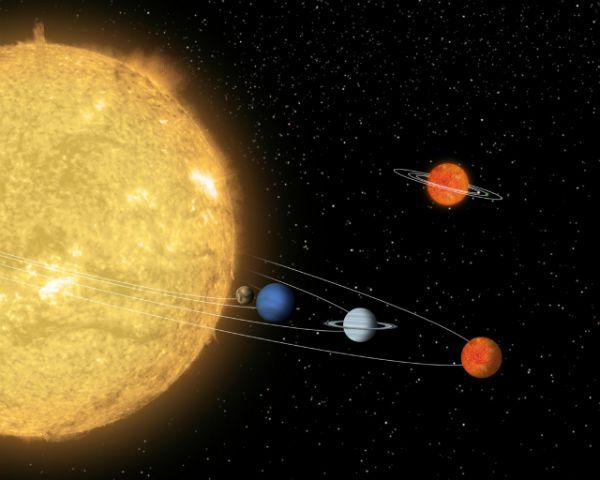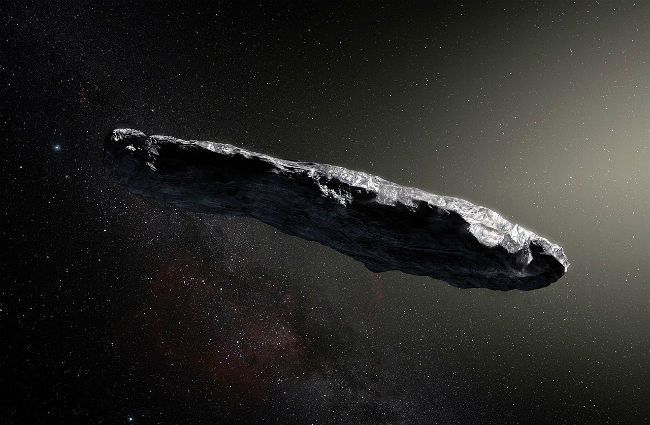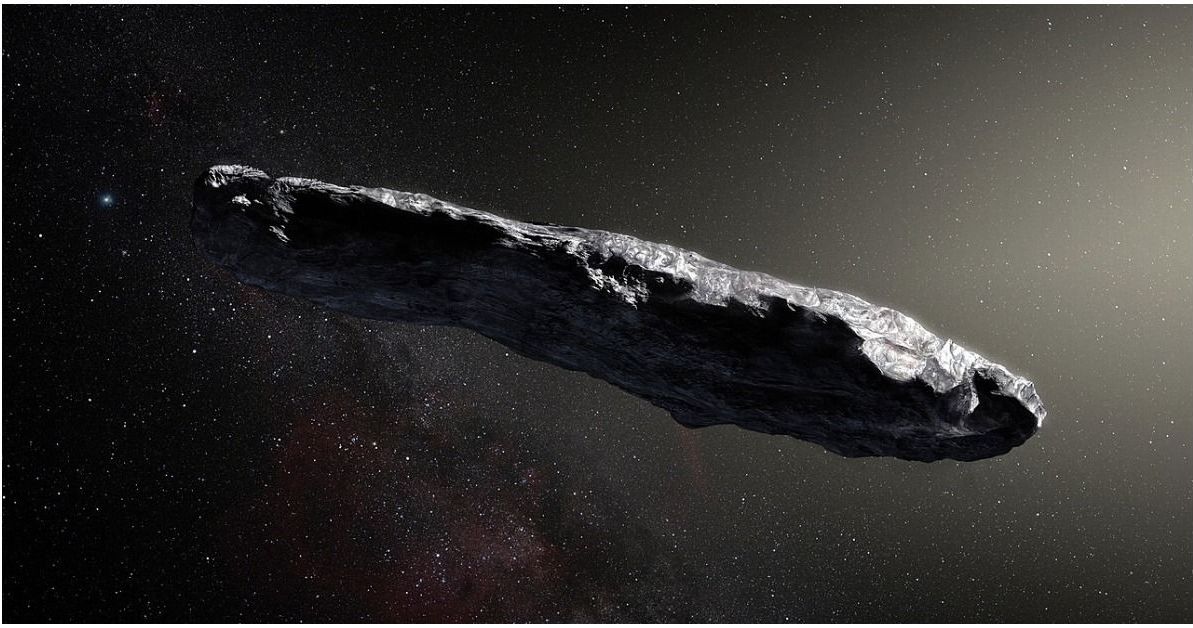Last year, the sighting of a mysterious object in our solar system alarmed both space experts and regular people.
A cigar-shaped object a quarter of a mile long called 'Oumuamua, a Hawaiian name meaning "a messenger from afar," was spotted last year by an observatory on the island.
It attracted so much attention because 'Oumuamua is the first object known to have entered our solar system from another. And that's not its only weird feature.

Now, a pair of researchers from Harvard University have offered a surprising explanation for the object: aliens.
Sent by "an alien civilization"?
Passing into our solar system from another part of the galaxy was just 'Oumuamua's first quirk.
It also has an odd needle shape, travels through space in a weird tumbling motion, and was spotted moving at more than 190,000 miles an hour.

These, and other reasons, lead Abraham Loeb and Shmuel Bialy from Harvard's Smithsonian Center for Astrophysics to guess that it may have an "artificial origin."
"'Oumuamua may be a fully operational probe sent intentionally to Earth vicinity by an alien civilization," they wrote in a paper submitted to Astrophysical Journal Letters.
They suggest that the object might be a light sail, or a device pushed forward by solar radiation. They even guess that it could be leftover debris from "advanced technological equipment" in space.
If it sounds crazy (and it kind of does), Loeb and Bialy point out that similar technology "has been designed and constructed by our own civilization."
So what is it really?
Whatever 'Oumuamua is, astronomists have had a hard time pinning it down as either a comet or an asteroid.
During its short time in our solar system, it didn't move like either of those common space objects.
This video shows just how much the mysterious object defied our guesses about its movements:
Instead, researchers call 'Oumuamua an "interstellar object," and the first of its kind.
For the record, other experts are quick to jump on the study, and tell "true believers" to keep watching the skies for real proof that aliens exist.
"I am distinctly unconvinced and honestly think the study is rather flawed," Alan Jackson of the University of Toronto Scarborough told CNN.
He says that whatever the object is, it's much closer to an asteroid or comet than alien technology.
A study from earlier this summer by the European Space Agency decided that "˜Oumuamua was a comet after all, and was simply "acting strangely" because of unusual gravitational effects.
Even astronomers from SETI - the Search for ExtraTerrestrial Intelligence - have their doubts about the paper.
But with 'Oumuamua traveling far out in space, only time and more unusual discoveries will unlock its mysteries.
[H/T: USA Today, CNN, Space.com]

